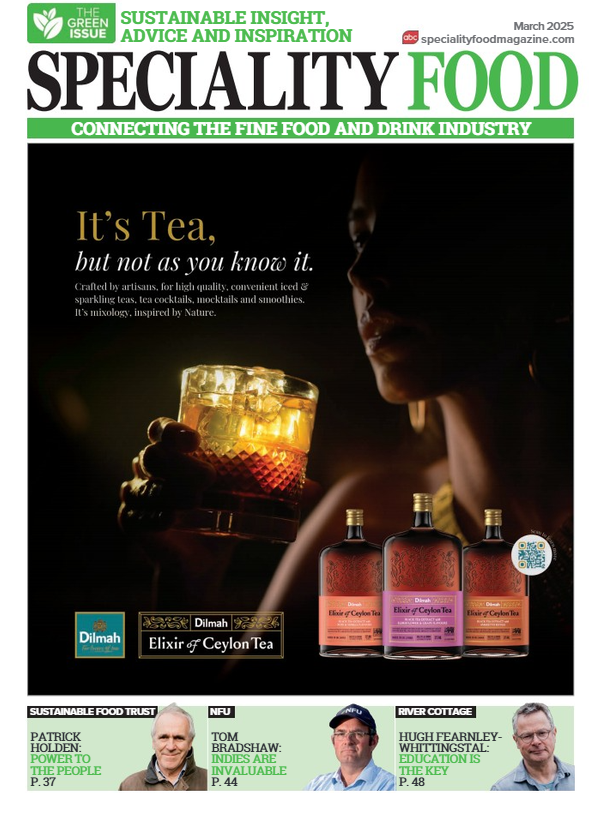“Keeping the faith”

- How one cheese shop supported locals in lockdown
- Rory Mellis, IJ Mellis: “Local businesses have a chance to flourish”
- Why we should be proud of the cheese industry’s response to Covid
- The joy of cheese grading
- “Keeping the faith”
Our aim is to produce world class cheese and have it sold world class around the world. What does that take?
First off, we need to produce world class cheese. That starts off with the ‘between the ears’ bit. We put producing world class cheese ahead of other considerations. If we are doing a great job on making cheese, and communicate effectively, the sales will follow. We have to be clear to ourselves and others what makes the difference to our quality, and keep upping our game over the years.
For our cows’ milk cheeses, that is milk from our own herd that we have bred to produce what we want. That takes years of careful and thoughtful breeding. It’s four years from when you chose a breeding direction for that milk to become mature Cheddar. We’ve found it matters what the cows eat. Our cows graze a high percentage of the time at pasture, giving grass fed flavours, golden colour and luscious textures.
Our heritage ‘wet pint’ starters give complexity to our flavours. They are more difficult to manage, and take two days of preparation to use. We nearly lost them, and get suggestions to use more industrial starters, and we love the richness of our flavours.
The finances can’t determine if we do a step that makes the difference to quality: it’s up to us to communicate to customers why our cheese costs what it costs, and make sure our quality delivers on that extra price. Hand-cheddaring makes a big difference to the flavour, as it presses out moisture and gets the right flavour and texture. Machines would do the job quicker and cheaper, and we value the attention and intention that our skilled cheesemakers bring. The same goes for clothbinding and naturally maturing, requiring all the care we lavish on our cheese in store.
If you ask some customers what they want, no rind could come towards the top of the list. We don’t listen to what all customers tell us, we keep the faith with what we know and what the best palates around tell us: rind gives our characteristic complexity of flavour and lovely variations in from heart to rind.
Our independent grader takes cores from all vats at three months and 12 months. We check we are making correctly, how the cheese is against the perfect flavour we’re after and select for the flavour profiles we’ve agreed with customers.
Over the years we’ve had generous advice from the champions of artisan cheese: our customers, advisors and knowledgeable people of all stripes, who have guided, encouraged and supported us to fulfil on world class.
We’ve got a great team, engaged in our joint effort: farm and cow team, cheesemakers, experts in storage and care of cheese, our packing team who present and quality control the flavour and aroma of the cheese before it goes out to customers. It’s always about communication to remove barriers to world class, and that is needs constant attention.
We need to tell the story of the cheese. A couple of years ago, we examined who we are for ourselves and who we are for our customers. We realized we didn’t tell the story of who we are: world class, from a farm in Devon, committed team, passionate about quality. We created a new look, a woodcut that signals what the cheese is and who we are. We get the message out with infographics, monthly blogs and social media: we share the life of a farm and cheese.
Our partners are all those champions of artisan cheese in retail, food service and opinion-formers who buy the cheese and tell the story. Our sales work is about talking and tasting, supporting those people to spread the love.
I’m part of the team setting up the Academy of Cheese, certifications to create the same kind of cachet as the Master of Wine programme. The future will be about getting that direct experience out, to empower people so they are no longer consumers, instead co-producers who understand why a gorgeous cheese is more expensive, and why we should stand tall and proud with the amazing cheeses of the British Isles.
more from Cheese Talk
-
“Don’t sway to populists”
25 August 2016 Cheese TalkWith consumer demands continually fluctuating and markets changing on a yearly basis, it’s almost impossible to predict what the new craze or sudden ‘loser’ will be. -
“Making a spectacle of yourself”
12 July 2016 Cheese TalkUntil a few weeks ago I was feeling rather smug about my moved to New Zealand, basking in a four month-long near-drought with autumn temperatures rarely falling below 20ºC -
“Cheese magic – it’s in our culture”
17 May 2016 Cheese TalkWe all know that cheese is magic… really. Some milk, some rennet, some starter culture, some salt and maybe sometimes some controlled mould, and hey presto you have thousands of different cheeses

